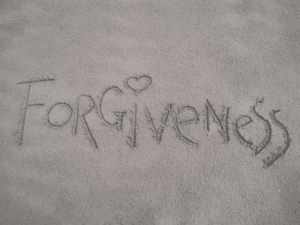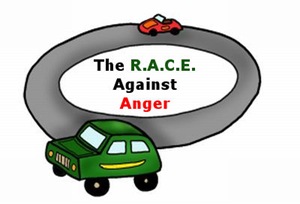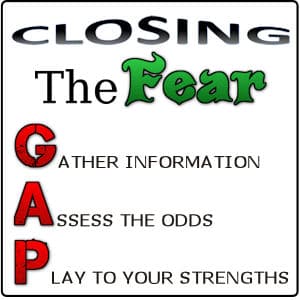
You can find instructions for how to make a Scream Box and how to use it at Hope 4 Hurting Kids.
Continue reading

You can find instructions for how to make a Scream Box and how to use it at Hope 4 Hurting Kids.
Continue reading

Should I Forgive My Parents for What They Have Done?
In this article, we will look at some specific things to keep in mind and steps you can take to forgive even when it’s hard.

You can find an updated copy of this article on Hope 4 Hurting Kids using this link.
Emotion wheels can be great tools for helping you to figure out what your feeling, introduce you to new emotions and help you to figure out what emotions might be underlying why you’re feeling.
This first wheel was created by Dr. Gloria Wilcox who is a licensed Marriage and Family Therapist in St Petersburg, Florida. It is a great tool for identifying emotions you might be feeling following the dissolution of your parents’ relationship. Emotions are grouped into six broad categories including Sad, Mad, Scared, Peaceful, Joyful and Powerful.
This second wheel is not quite as colorful but includes even more emotion words to broaden your emotion vocabulary. We found it originally on http://makalaonlife.tumblr.com.
If you are wondering if your parents’ divorce or separation is your fault, you are not alone. Most children of divorce at some point believe that their parents’ split up had something to do with them. Maybe you think if you had behaved better they would still be together. Perhaps you wonder if you weren’t involved in so many extra-curricular activities if they wouldn’t fight so much and would still be together. Maybe something happened on the day your parents told you about the split, and you’re convinced that what you did that day caused them to split up. Regardless of why you think you caused your parents’ divorce, there is one thing that you need to know for certain:
In other words:

STEP #1: RECONGNIZE YOUR ANGER
The first step in addressing your anger is to recognize when you are angry. Pay attention to what your body feel like when you get angry. Do your shoulders tense up? What does your face look like when you’re angry? How do you feel deep in your stomach when you’re angry? You might want to use the anger page from our My Feelings Workbook to help you understand how your body reacts to anger. Other things you will want to keep track are the things that make you angry and how angry you get. You can use the Anger-ometer to keep track of this for a week to note patterns in your anger. By understanding your anger, you will be in a better position to deal with it.
STEP #2: ADDRESS YOUR ANGER
It is important that you address any anger that you may be feeling. It is easy to just write off your anger or to bury it deep inside. Both of these options will lead to long term problems. Anger which is not dealt with will only fester and grow until it eventually comes out. Anger buried deep inside and not dealt with is like a volcano just waiting to erupt.

Experts have identified five distinct stages in grief. You may not experience these stages sequentially (meaning one after the other), but you are likely to experience all five stages in dealing with the loss in your life. You may also experiences these different stages numerous times as you continue to get older and understand more and more about life and the loss you have experienced as the result of your parents’ divorce.
Elizabeth Kubler Ross identified five stages of grief that people experience following the death of someone close. These five stages will also apply to processing the losses you have experienced as a result of the divorce. They include:
1. Denial
During this stage you may deny that anything has changed about your family. You don’t talk about it. You try not to think about it. You convince yourself that everything will get back to normal soon. Rather than deal with the emotions and feelings you are experiencing, you push them deep down inside and pretend nothing is going on. You might be wondering why all this is happening to you in the first place. In order to move into the other stages of grief, you must first be willing to admit that you have lost something.

These are just some things that children of divorce may fear or be anxious about. These fears and anxiety can come and go as time passes. Which items from the list apply to you and your situation?
Anxiety and fear are often caused by a lack of information or a plan. In other words, fear often results from gaps – gaps in information, gaps in understanding and gaps in ability. Closing those gaps can help to alleviate some of those fears. One easy to remember method for dealing with your fears and anxieties is known as the “GAP Method.”
The letters in “Gap” spell out the basic steps in the GAP Method which are:
Gather Information,
Assess the Odds; and
Play to Your Strengths.
By using this method, you can help yourself to get over those fears and anxieties and focus your efforts and emotions on more positive things. Let’s look at each step a little bit closer.
GATHER INFORMATION
The biggest thing that feeds many of our fears is the unknown. When we don’t know what is going on or what is going to happen, we don’t feel like we have any control over the situation, and this leads to increased feelings of fear and anxiety. So, the first step in overcoming fears is to gather information. Do some research about the things that scare you. If your biggest fear is having to move to a new neighborhood or school, find out all the information you can about that neighborhood. Where is it? What it is like? Do you have any friends who live in that neighborhood already? What is the new school like? Does it have the same extracurricular activities that you’re currently in? If your biggest fear has to do with not getting to see one of your parents, gather information on that. What visitation schedule has the judge decided on? What is your parents’ plan for making sure that you can see both of them? What other options are available to stay in contact? Talk to your parents about these question. There is an old saying that, “knowledge is power,” and in this case knowledge holds the power to squash your fears.

Some kids are happy following their parents divorce, and that is ok! Maybe your parents fought a lot. That can be very stressful to you as their child, and maybe you are happy that you just don’t have to listen to it anymore. Maybe your Dad pays more attention to you when you spend time together after the divorce than he ever did before. That can definitely make you happy. Maybe you’ve had to move or something else that you view your life like a big adventure, and going on that adventure makes you happy. It doesn’t matter what it is that makes you happy, the important thing to remember is that it is perfectly acceptable for you to be happy following your parents’ divorce. And, no one should tell you otherwise.
When you are happy, enjoy it! Even if you are generally happy with the divorce, there will likely be times when that fades and you’re not so happy anymore. That’s ok too. Sometimes we are happy, and sometimes we are not – that doesn’t change after a divorce. The important thing is that we understand that however we feel, that’s ok. It is also important to recognize how we feel and find someone we trust to talk to about it. So, if you’re happy go find something fun to do and enjoy being happy. There is plenty of time for other emotions at a later time.
